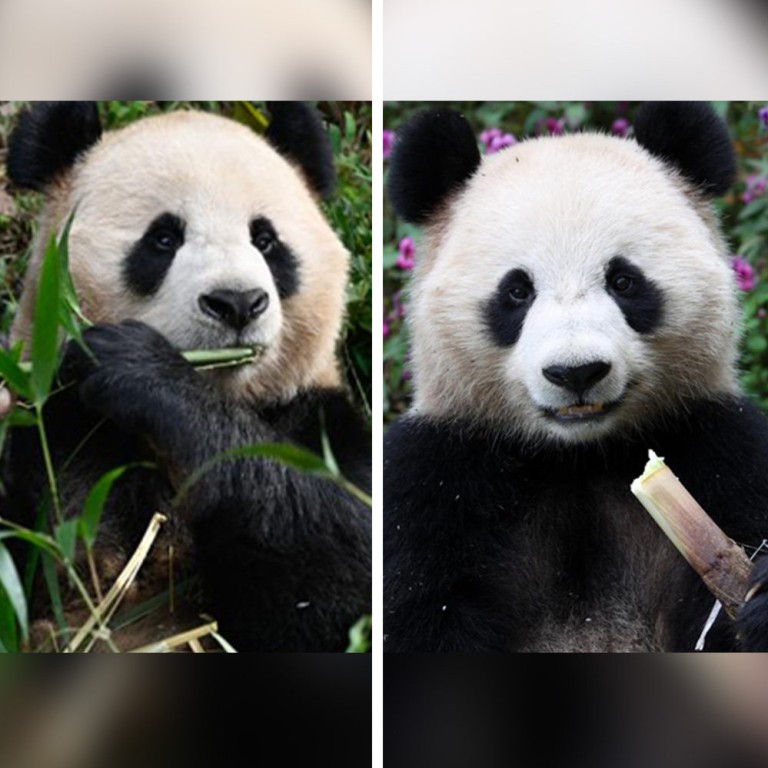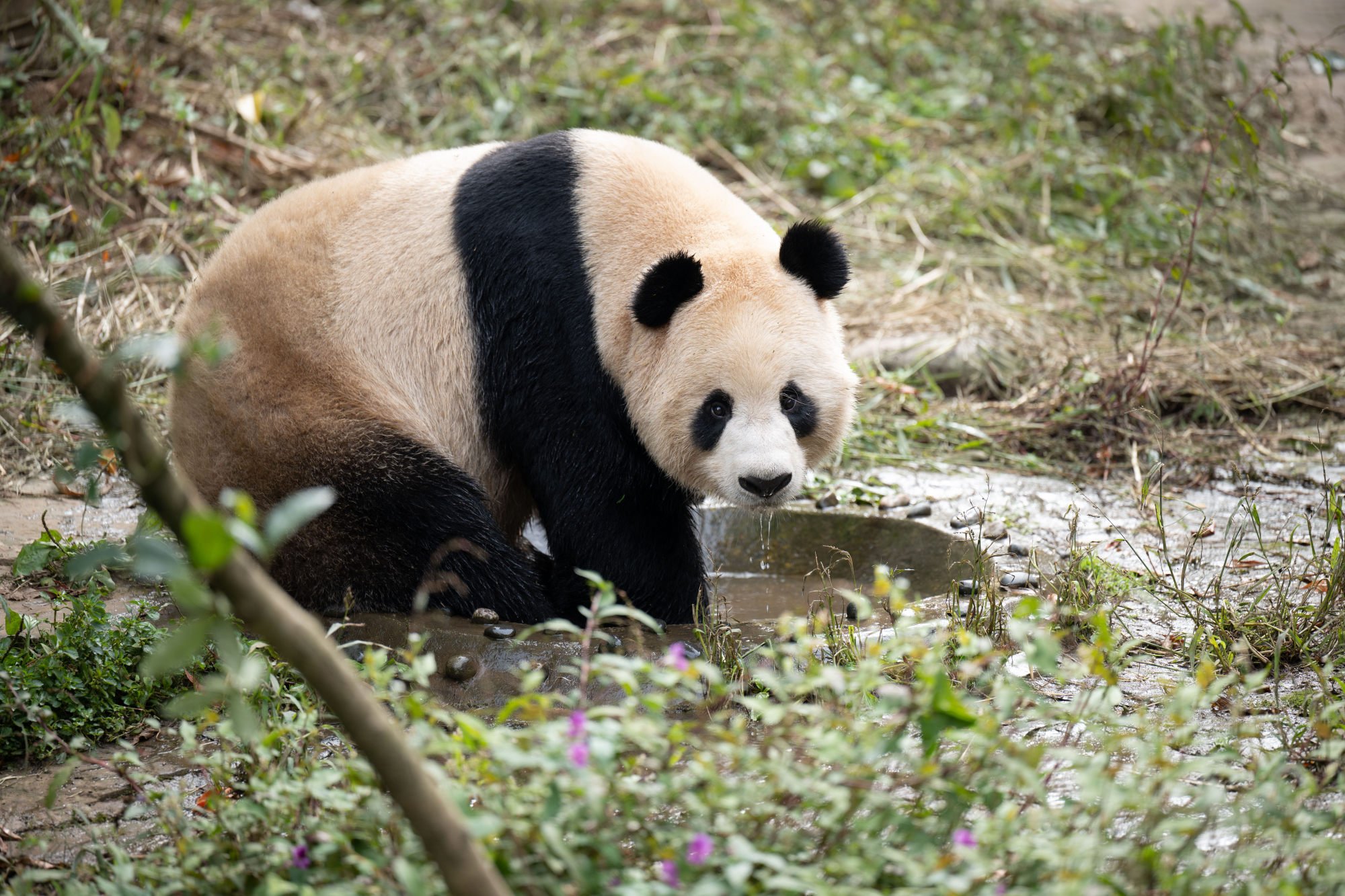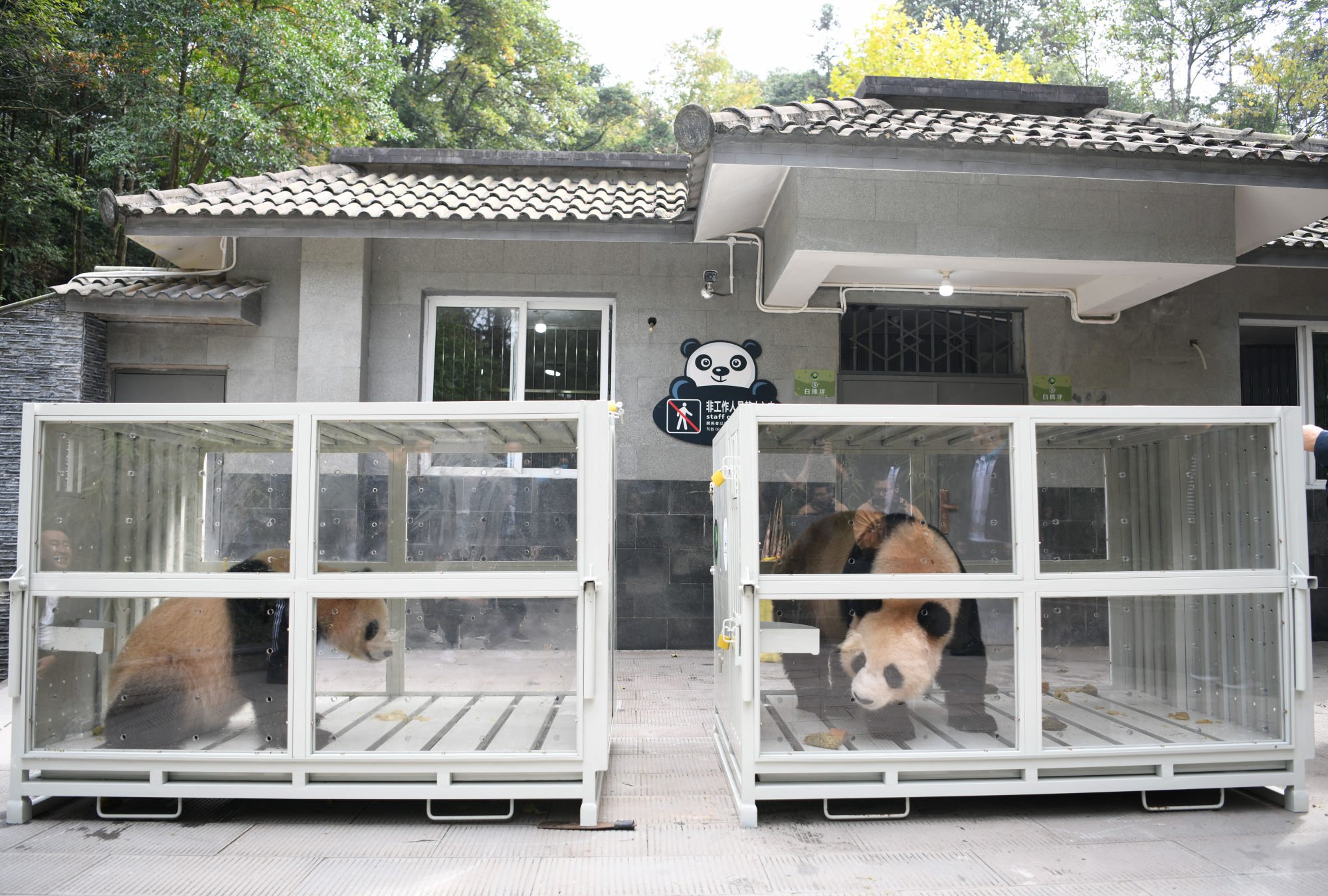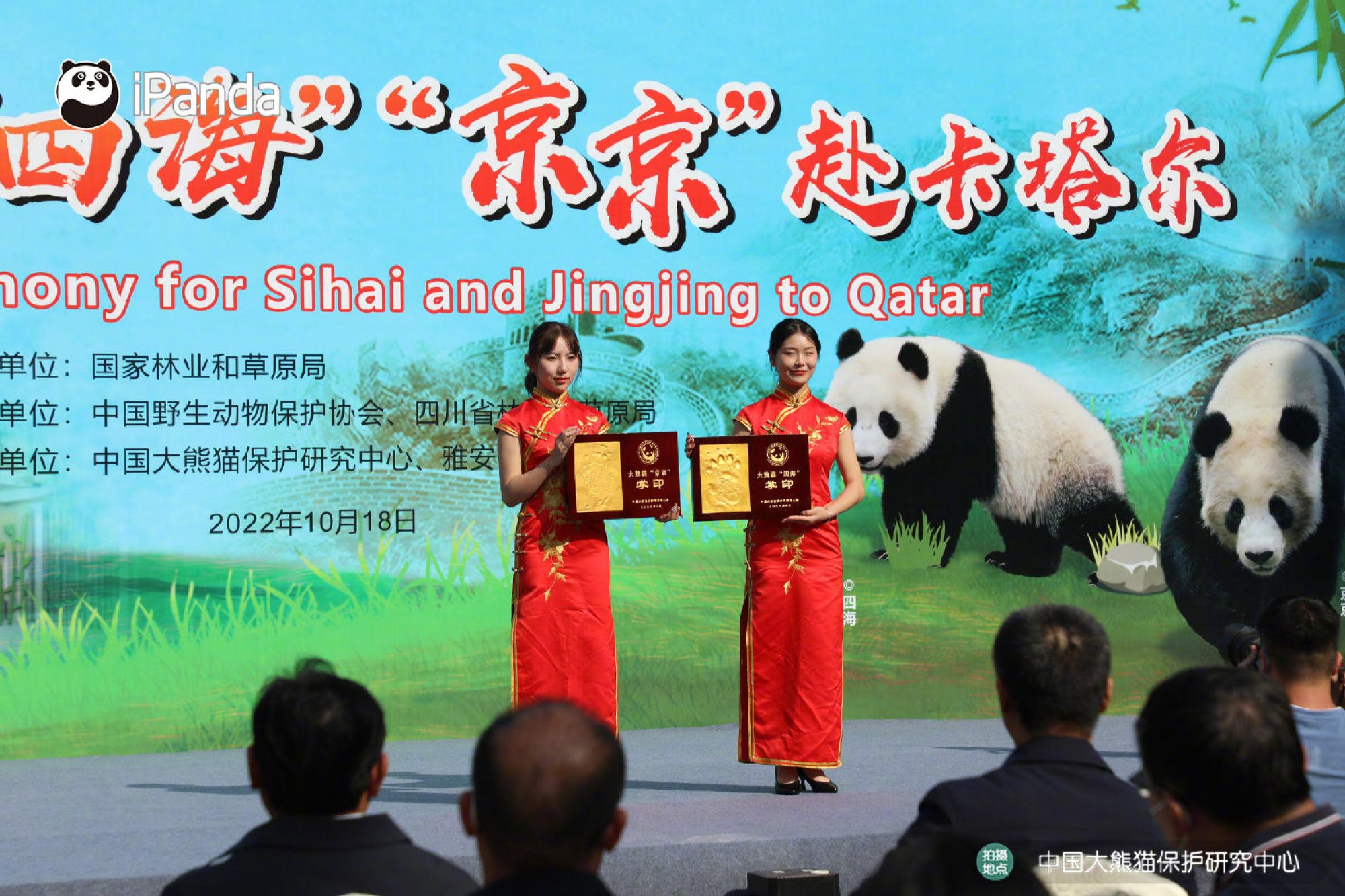
Two giant Chinese pandas land in Qatar for first-ever ‘panda diplomacy’ in Middle East ahead of this year’s World Cup
- The pair, named Si Hai and Jing Jing in China, will be renamed now that they have arrived in Qatar
- While the football team will not compete, China played a huge role in building the infrastructure that allowed the World Cup to happen
With the 2022 World Cup just about a month away, two giant pandas from China arrived in Qatar on Wednesday afternoon and will spend the foreseeable future living in an enclosed environment designed to mimic their natural environment.
According to the Associated Press, China will fly 800kg of fresh bamboo to Qatar every week to feed the two bears.

Suhail is the name of one of the most visible stars in the gulf region, while Soraya is the Arabic word for a star cluster called the Pleiades in English, also known as The Seven Sisters.
Si Hai weighs 70kg while Jing Jing is 120kg.
The transfer of the pandas represent the first example of “panda diplomacy” in the Middle East, according to state-run newswire Xinhua.
After spending a month in quarantine and undergoing a check for diseases, Si Hai and Jing Jing took a special plane to Qatar designed to make the trip as stress-free as possible.

The bears will be accompanied by several teams of Chinese experts who will help facilitate their transition and guide Qatari experts who plan to build a panda breeding programme.
The panda diplomacy may have started at the Beijing 2022 Winter Olympics when Qatar’s Emir Sheikh Tamim bin Hamad Al Thani attended the opening ceremony. Afterwards, Chinese President Xi Jinping said he was open to starting panda diplomacy with Qatar.
But as early as in May 2020, China and Qatar had already signed a cooperation agreement to “promote the protection of endangered species and biodiversity in the two countries”.

When the panda transfer was announced on September 27, Zhou Jian, China’s ambassador in Doha, said: “This is a gift presented by the 1.4 billion Chinese people for the Qatar World Cup, and will surely become a new symbol of China-Qatar friendship.”
While China’s football team did not qualify for the World Cup this year, Chinese companies have played an enormous role in building the tournament infrastructure. Most notably, the main venue for the tournament, Lusail Stadium, was built as a joint venture by HBK Contracting, a local firm, and China Railway Construction Corporation.

